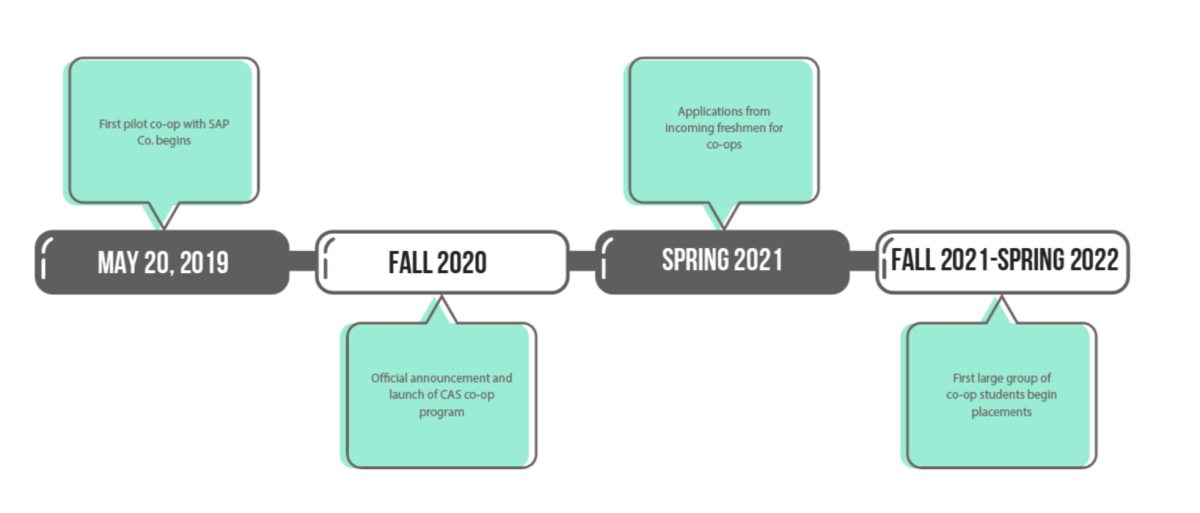Shaily Menon, Ph.D., dean of the College of Arts and Sciences (CAS), is working to implement co-ops with individual arts and sciences departments for incoming students to launch in 2021.
Menon is currently offering a pilot run of co-op programs for students enrolled in CAS. Students enrolled in CAS co-op programs would be paid to work full time at companies such as SAP America Inc., Independence Blue Cross and Aetna Inc.
If the program is implemented, students would apply during their first year. If chosen for the program, students would participate in two work experiences, typically during their second and third years. Then they would take five courses during a summer in order to graduate in four years.
Menon said when speaking with students, the lack of career opportunities for students in CAS came up consistently.
“Students definitely have access to [internships], but co-ops, how come CAS doesn’t have it?” Menon said. “[Co-ops] just add to that wealth of opportunities that students now have.”
The Erivan K. Haub School of Business has had an established co-op program for over five years, according to the Haub School website. Haub partners with over 25 businesses to help students gain work experience where 74 % of student participants reported being introduced to a profession they want to pursue.
James Caccamo, Ph.D., associate professor of theology and associate dean for Students and Experiential Learning, said this is the beginning of launching co-ops as a student program.
“We’re working with departments who are interested in the co-ops to work on seeing if they can develop business relationships and get students doing internships to transition over to co-ops,” Caccamo said.
Because the program is still in the pilot phase, some areas are still undeveloped.
“We’re not going to have 200 placements on the first day, but that’s something we’re working on right now,” Caccamo said. “We can make our plans, but this is a dynamic and [evolving] experience all around.”
Menon said it was important to her that they test the program before officially implementing it.
“Before we started, we wanted to make sure that it’s workable,” Menon said. “We also wanted to be sure that students could succeed and graduate in four years, and get jobs.”
Caccamo is continuing to collaborate with departments to decide what makes sense for their majors and careers to find a program that works best for their fields while developing the official program.
Among the first majors to join co-ops were economics, actuarial sciences and computer sciences, which already have similar programs Caccamo said, leading to a much easier integration.
Anna-Maria Berezovski ’21, a computer science and Asian studies double major who is enrolled in the pilot, applied during the spring semester of 2019.
Berezovski works for SAP America Inc., a data management company that creates and provides software and services for businesses.
“The goal is that you try many different aspects of the company and you find one that you like, so when you graduate you’ll join that part of the company, and you won’t have to do training because you’ve already been trained,” Berezovski said.
Berezovski said participating in the co-op for her major was a very valuable opportunity for her, and something invaluable for any students’ resume.
“It has definitely taught me better time management, but it’s also about having that real-life experience of working,” Berezovski said. “Working is very different than academia, so having that exposure is wonderful.”
CAS will continue its pilot phase for coops throughout the 2020-2021 school year. The formal announcement will take place this spring, with a full launch in fall 2021.
“Fall 2020 to spring 2021 will be a year to see what we can do to develop our relationships with placement sites and to get ready to bring a lot more to the table for the 21-22 year,” Caccamo said.














































